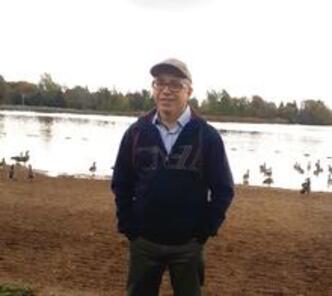
Graduating from a health faculty during a health crisis
More than 250 Applied Health Students will receive their degrees at fall convocation

More than 250 Applied Health Students will receive their degrees at fall convocation
By Eugenia Xenos Anderson Faculty of Applied Health SciencesNever has the importance of a health-related degree been more apparent than it is today. On October 23, almost 200 graduate students and more than 50 undergraduate students from the three academic units in the Faculty of Applied Health Sciences will celebrate convocation.
“I think that the value and contributions of public health science in the health-care system have never been as evident and clear as they have been since the beginning of the COVID-19 crisis,” says Moutasem Zakkar, who has just graduated with a PhD from the School of Public Health and Health Systems. “The world has realized the importance of public health and its core foundations, such as health surveillance, epidemiology, health promotion, health communication, global health, health equity and service evaluation.”

Moutasem Zakkar

Jessica Vander Vaart
Graduating from a health faculty “likely means that you have learned some things in this field that could make you more knowledgeable in a situation like this,” says Jessica Vander Vaart, a BSc in Kinesiology graduand.
Vander Vaart is continuing with her education, pursuing a Master of Science in Kinesiology here at Waterloo. She says her undergraduate degree in Kinesiology offered multifaceted opportunities to learn about the discipline and oneself.
Extracurricular activities also featured prominently for Richmond Nketiah, a full-time varsity football player. The Recreation and Leisure Studies Bachelor of Arts graduand says, “The best part of my degree was honestly how difficult it was to attain it. There were lots of sleepless nights when I wanted to give up, but I kept reminding myself how hard I worked to get here. Those difficult days instilled in me a persevering attitude that I will carry with me in anything I desire to do for the rest of my life.”

Richmond Nketiah
The added stressors that the pandemic has introduced amplify the need for strong support systems, Nketiah says. “The advice I would give current students is to never give up. A lot of life’s best rewards are received on the end of working hard. Set goals — I recommend writing them down so you can look at them every day and remind yourself of what you are trying to achieve.
“Finally, university goes by in a blink of an eye, so while you’re working hard to get that degree, don’t forget to go out there and meet people and create life-long friendships and have fun. Also, please ensure that you have a great support system to help you get through those difficult days. Good luck on all your future endeavours; the world is yours.”
Hear from more outstanding AHS graduating students:

Read more
How one student took a leap of faith and learned to count the small victories

Read more
Meet the six class speakers that have inspired our graduating students

Read more
Spotlighting the accomplishments of six exceptional students
The University of Waterloo acknowledges that much of our work takes place on the traditional territory of the Neutral, Anishinaabeg, and Haudenosaunee peoples. Our main campus is situated on the Haldimand Tract, the land granted to the Six Nations that includes six miles on each side of the Grand River. Our active work toward reconciliation takes place across our campuses through research, learning, teaching, and community building, and is co-ordinated within the Office of Indigenous Relations.